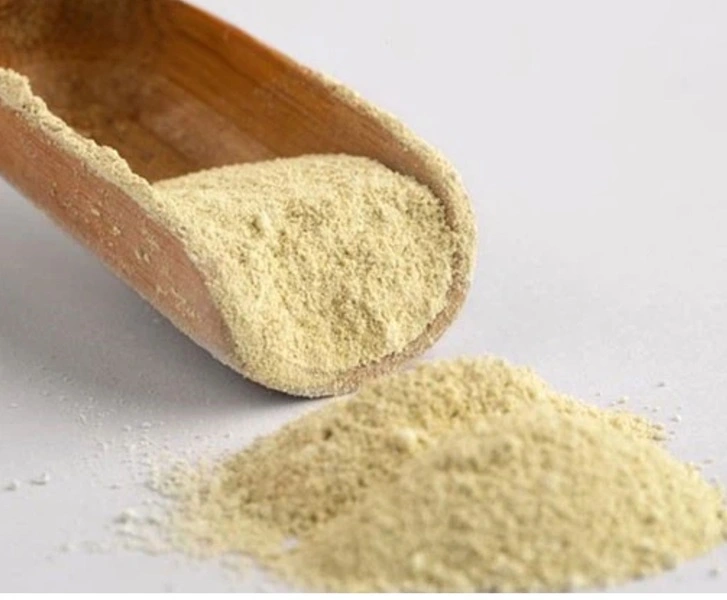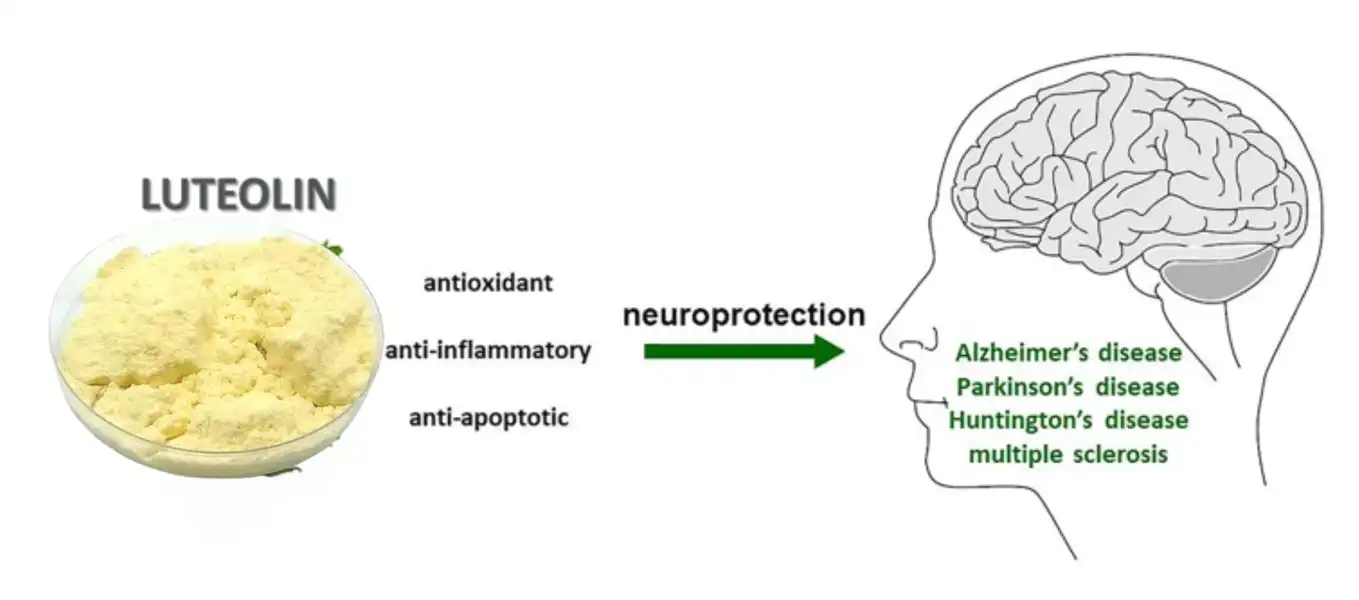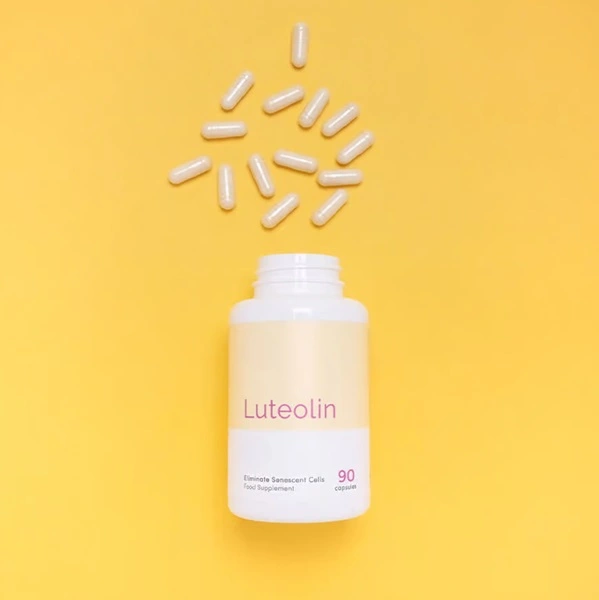Discover the Benefits of Luteolin for Your Health
Luteolin, a powerful flavonoid found in various plants, has been garnering attention in the health and wellness community for its potential benefits. This natural compound offers a range of health-promoting properties that could make it a valuable addition to your diet. In this article, we'll explore what luteolin is, its potential health benefits, and how you can incorporate it into your daily routine.

What Is Luteolin and How Does It Work?
Luteolin is a yellow crystalline compound belonging to the flavonoid family of plant pigments. It's found in numerous fruits, vegetables, and herbs, serving as a protective agent against environmental stressors and microbial infections in plants. In the human body, luteolin acts as a potent antioxidant and anti-inflammatory agent.
The mechanisms through which luteolin works are multifaceted. It primarily functions by:
- Scavenging harmful free radicals
- Modulating inflammatory pathways
- Regulating cell signaling processes
- Inhibiting certain enzymes involved in inflammation
These actions contribute to luteolin's wide array of potential health benefits, making it a compound of significant interest in nutritional and medical research.
Top Health Benefits of Luteolin You Should Know
Research on luteolin has unveiled several promising health benefits. While many studies are still in preliminary stages, the results are encouraging. Here are some of the top potential health benefits of luteolin:
Potent Anti-inflammatory Effects
Luteolin has strong anti-inflammatory effects, effectively reducing the production of pro-inflammatory cytokines and blocking several inflammatory pathways in the body. This makes it a valuable compound for managing chronic inflammatory conditions, including arthritis and inflammatory bowel diseases. By targeting inflammation at multiple levels, luteolin helps alleviate symptoms and supports overall health, making it a promising natural remedy for conditions associated with persistent inflammation.
Antioxidant Protection
Luteolin, a potent antioxidant, works to neutralize harmful free radicals in the body. By doing so, it helps reduce oxidative stress, which is linked to various chronic diseases caused by cellular damage. This protective effect may lower the risk of conditions such as heart disease, cancer, and neurodegenerative disorders, promoting overall health and well-being. Through its antioxidant properties, luteolin plays a key role in safeguarding the body against the damaging effects of oxidative stress.
Potential Cancer-Fighting Properties
Several studies suggest that luteolin may have anti-cancer properties. It has been shown to inhibit tumor growth, induce apoptosis (programmed cell death) in cancer cells, and prevent angiogenesis (formation of new blood vessels that feed tumors).
Neuroprotective Effects
Luteolin may offer neuroprotective benefits. Research indicates it could help reduce inflammation in the brain, potentially benefiting conditions like multiple sclerosis and Alzheimer's disease.
Cardiovascular Health Support
Research suggests that luteolin may promote heart health by reducing inflammation, lowering blood pressure, and improving cholesterol levels. These effects contribute to better cardiovascular function and may help reduce the risk of heart-related issues, supporting overall heart health and well-being.
Allergy Symptom Relief
Luteolin has shown promise in alleviating allergy symptoms. It may inhibit the release of histamines, potentially reducing allergic reactions and improving symptoms of conditions like allergic rhinitis.

Luteolin in Your Diet: Natural Sources and Supplements
Incorporating luteolin into your diet can be achieved through both natural food sources and dietary supplements. Here's what you need to know:
Natural Food Sources of Luteolin
Luteolin is found in various plant-based foods. Some of the richest sources include:
- Celery
- Green peppers
- Parsley
- Thyme
- Peppermint
- Chamomile tea
- Carrots
- Olive oil
- Oregano
- Rosemary
Including these foods in your diet can help increase your natural intake of luteolin.
Luteolin Supplements
For those looking to boost their luteolin intake beyond dietary sources, supplements are available. These typically come in the form of capsules or powders. However, it's crucial to note that the FDA does not regulate dietary supplements as strictly as medications. Therefore, it's essential to choose high-quality supplements from reputable manufacturers.
Dosage and Safety Considerations
While luteolin is generally considered safe when consumed in food, the safety profile of high-dose supplements is less clear. There's no established recommended daily intake for luteolin supplements. If you're considering taking luteolin supplements, it's advisable to consult with a healthcare professional to determine an appropriate dosage and ensure it won't interact with any medications you're taking.
Potential Side Effects
Although side effects from luteolin are rare, some people may experience:
- Increased irritability (observed in some children with autism spectrum disorders)
- Potential interactions with certain medications
- Possible effects on hormone levels
Always monitor your body's response when introducing any new supplement and discontinue use if you experience any adverse effects.

Conclusion
Luteolin is a promising flavonoid with a range of potential health benefits. From its anti-inflammatory and antioxidant properties to its potential in supporting heart health and fighting cancer, luteolin offers exciting possibilities for enhancing overall wellness. While more research is needed to fully understand its effects and optimal usage, incorporating luteolin-rich foods into your diet could be a simple way to harness its benefits.
As with any dietary change or supplement regimen, it's always best to consult with a healthcare professional before making significant changes. If you're interested in learning more about luteolin or other natural plant extracts, don't hesitate to reach out to us at info@yanggebiotech.com. We're here to help you navigate the world of natural health solutions and find the best options for your wellness journey.
FAQ
Q: Can we get some samples to test before purchasing?
A: Of course, we can provide free samples of 20 to 100 grams, but the shipping cost is at the customer's expense. The shipping cost can be deducted from the next order, or the samples can be sent through your courier account.
Q: Do your products have relevant certifications?
A: Yes, our products are certified for HALAL, ISO, HACCP, Kosher, and other certifications.
Q: What is the minimum order quantity (MOQ)?
A: Small batches of samples can be customized according to your requirements.
Q: Do you offer OEM and ODM services? Can the formula be customized based on our own?
A: Of course, we provide ODM and OEM services to many customers. Our product range includes softgels, capsules, tablets, sachets, granules, and private label services. Simply contact us and let us know your requirements. Our experienced R&D team can also develop new products with specific formulas.
Please contact us to design your own branded products.
Q: How do you handle quality complaints?
A: First, we have a comprehensive quality control SOP. We provide authoritative third-party inspection reports for almost all products before shipment to minimize the possibility of quality issues. Second, we have a comprehensive return and exchange procedure. If there is a genuine quality dispute, we will strictly follow the SOP.
Q: How do you ship? How long does delivery take?
A: For small orders, we typically use DHL, UPS, EMS, FedEx, or TNT. Delivery typically takes 3-7 days. We also offer air and sea freight services. We have a strong freight forwarding team and can provide you with a one-stop service, including DDP and DDU.
Q: What are your payment terms?
A: 100% prepayment, payable by T/T, Western Union, MoneyGram, or PayPal.
Q: What is the shelf life of your products?
A: 2 years with proper storage.
Q: Is the packaging environmentally friendly?
A: We attach great importance to environmental protection and are constantly improving our product packaging. Some products are packaged in recyclable paper. Packaging materials are carefully selected to ensure product safety during transportation and storage, and to minimize environmental impact. We are committed to achieving a balance between environmental friendliness and practicality in our product packaging, and to contributing to sustainable development.
References
1. López-Lázaro, M. (2009). Distribution and biological activities of the flavonoid luteolin. Mini reviews in medicinal chemistry, 9(1), 31-59.
2. Seelinger, G., Merfort, I., & Schempp, C. M. (2008). Anti-oxidant, anti-inflammatory and anti-allergic activities of luteolin. Planta medica, 74(14), 1667-1677.
3. Lin, Y., Shi, R., Wang, X., & Shen, H. M. (2008). Luteolin, a flavonoid with potential for cancer prevention and therapy. Current cancer drug targets, 8(7), 634-646.
4. Theoharides, T. C., Asadi, S., & Panagiotidou, S. (2012). A case series of a luteolin formulation (NeuroProtek®) in children with autism spectrum disorders. International journal of immunopathology and pharmacology, 25(2), 317-323.
5. Nabavi, S. F., Braidy, N., Gortzi, O., Sobarzo-Sanchez, E., Daglia, M., Skalicka-Woźniak, K., & Nabavi, S. M. (2015). Luteolin as an anti-inflammatory and neuroprotective agent: A brief review. Brain research bulletin, 119, 1-11.

Based on your location and order quantity, you will have the opportunity to receive a limited time free shipping promotion!

Who we are


